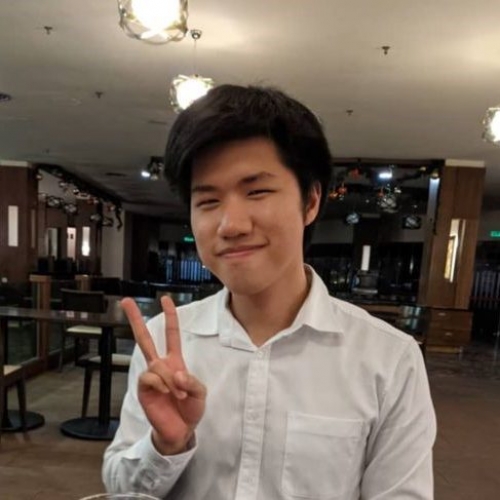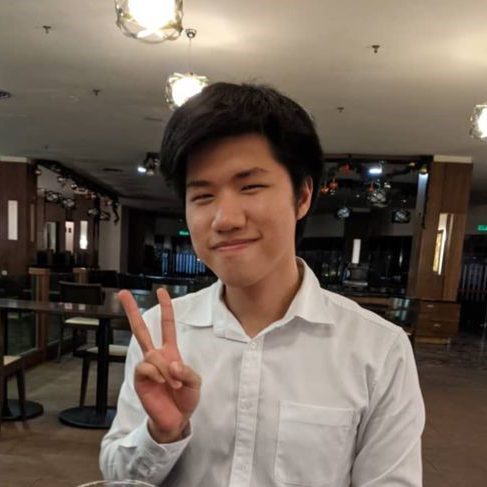
Ian Lim Han Yan
Monash University Malaysia
For the longest time, biology and science have always been driving my deepest curiosities and motivation in learning new things every day. I have recently completed my Bachelor of Science in Genomics & Bioinformatics (with a second major in Psychology) at Monash University Malaysia (MUM). As I have many interests (health, conservation, science communication), the exact decision of my career is still uncertain. However, I am pursuing a continuation of my studies with Monash through an Honours degree in Genomics & Bioinformatics, potentially working on bioinformatics applications of conservation or health genomics. I have undertaken an apprenticeship in the MUM Genomics Facility this year, successfully completing a conservation genomics project based on the Qatar Falcon Genome Project focussing on genomic differentiation and selective signatures between gyrfalcons and saker falcons [under the supervision of Prof. Qasim Ayub, Prof. Sadequr Rahman and Farooq Omar Al-Ajli (PhD candidate).
Can you give me a quick overview of the type of mathematics you are studying and its potential applications or outcomes
My undergraduate degree mainly focused on the genomics aspect, with some applications and basics in bioinformatics in my final year. Genomics examines the ever-increasing amount of biological data by helping us understand the structural, functional, evolutionary, etc. information available. Bioinformatics, however, expands the discovery process beyond the traditional wet-lab and utilizes the latest array of analytical software to contribute insights in medical, agricultural, conservation, environmental and forensics for the betterment of society and the planet’s health. Currently, my interests lie in conservation and health genomics.
How did you get into bioinformatics?
My interest in the bioinformatics field was kickstarted in February when I had attended the virtual webinar on the Threatened Species Initiative in Australia. Even though my undergraduate degree in Malaysia left close to zero opportunities in advancing one of my passions in conservation, I discovered through that webinar that genomics and bioinformatics are crucial fields in expanding our knowledge of our threatened wildlife to help manage their population health. Hence, I reached out to my current supervisor, Prof Qasim Ayub, and I was informed that Monash Malaysia has recently commenced an initiative similar to the Vertebrate Genomes Project called the Malaysian BioGenome Project. Its aim was to capture indigenous species’ biodiversity through the generation of high-quality reference genomes to aid conservation efforts, rejuvenating and preserving the tropical natural habitat in the region. It was something I found truly inspiring and that was when I explored the conservation genomics field during my apprenticeship. However, I am still open to learning more about other genomics fields.
What advice would you give to your younger self or others wanting to studying the mathematical sciences?
Plan early, and plan well, while taking time to reflect every day on the work you do and why you dedicate your time to it. Don’t be intimidated by learning more skills beyond the limited academic curriculum. I would advise everyone to be more open and take advantage of opportunities that come their way. I would have also taken up coding language and software classes, which would have accelerated my progression in my career path.
What was your motivation for attending AMSI BioInfoSummer?
I heard about AMSI BioInfoSummer through mail as I was subscribed to their mail lists of organizations or contacts similar to my career path to keep myself updated on the latest trends in the bioinformatics field. My main motivation to attend the event was to broaden my knowledge, possibly network, and advance my coding skills.
My 4-day experience was overwhelming, but an insightful and inspiring one. I would definitely recommend AMSI BioInfoSummer as it was a diverse, overwhelming, and insightful event. It is a succinct package that represents many different aspects of bioinformatics and computational biology, which can be overwhelming at times due to my lack of exposure and unfamiliarity with some sub-fields. However, the 4-day conference covers the presentations of diverse and various researchers from many backgrounds regarding their current work or their field. Each day includes a guided workshop under several disciplines involving Snakemake workflow, machine learning in life sciences, metagenomic analysis, and long-read assembly of bacterial genomes, etc.
You received an AMSI BioInfoSummer registration scholarship to attend AMSI BioInfoSummer. How important was this in terms of your ability to attend and fully participate in the sessions throughout the week?
Achieving a scholarship helped in maintaining my motivation despite facing difficulties following some challenging webinars, and it definitely supported me financially as a student in Malaysia.
What was your main take away from AMSI BioInfoSummer?
My main takeaway is that while the dry-lab process can be tedious and ‘dry’, it is extremely rewarding as the analytical work can provide extremely insightful information to the masses. It has enormous potential and I would definitely expand and improve my coding skills in Python, R, and other relevant software to support my career path.
Where do you want the mathematical sciences to take you? Where do you see yourself in five or ten years’ time?
I would project my future self in a career that fulfils me in all aspects while supporting human and wildlife health.

